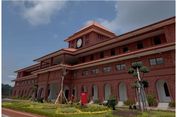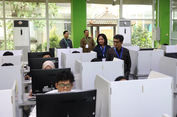Like Mubarak, Soeharto Bought Stability through Repression
In the Philippines, a civilian-military revolt overturned dictator Ferdinand Marcos and begat a corruption-tainted but enduring democracy. US-backed Chilean strongman Augusto Pinochet was forced by popular will to hold a 1988 referendum which led to a constitutional and electoral process.
And in US ally South Korea, pro-democracy protests jolted a military authoritarian regime to begin to transition to direct elections. US officials also looked at Poland’s transition from communist rule under charismatic Lech Walesa and the Czech Republic’s emergence under Vaclav Havel after the demise of the Warsaw Pact.
They caution that the march from dictatorship to genuine democracy is fraught, technical and not assured. Transitions that embrace all sectors of opinion have the best chance of success.
For Egypt, that would likely mean the military, civil society, opposition parties and grass roots protesters concurring on the way forward. “The key thing is that some group doesn’t feel disenfranchised by the process. You do that and you get spoilers,” a senior official said.
History shows Egypt would also be wise to “limit the agenda of change” the official said — adding that to try to do too much at once could lead to a fracturing of vital consensus. Egypt lacks the key ingredient of some popular revolts — a charismatic figure embodying hunger for change — as the Philippines had in Corazon Aquino.
But Carothers pointed out that while a rallying figure could provide “useful socio-political glue” the Chilean reform movement lacked an anti-government focal point but still succeeded.
Simak breaking news dan berita pilihan kami langsung di ponselmu. Pilih saluran andalanmu akses berita Kompas.com WhatsApp Channel : https://www.whatsapp.com/channel/0029VaFPbedBPzjZrk13HO3D. Pastikan kamu sudah install aplikasi WhatsApp ya.

































